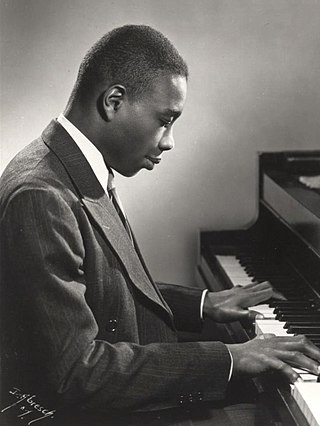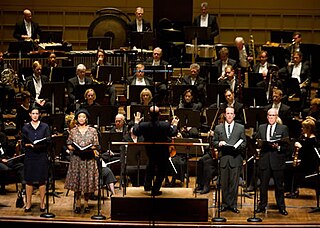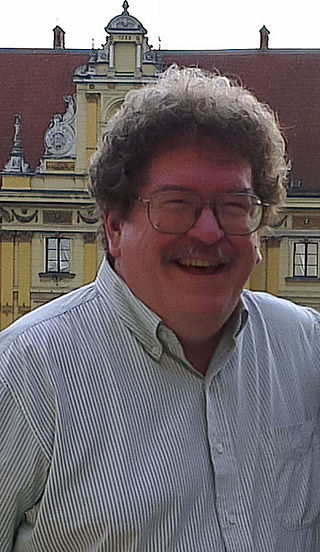Ellen Taaffe Zwilich is an American composer, the first female composer to win the Pulitzer Prize for Music. Her early works are marked by atonal exploration, but by the late 1980s, she had shifted to a postmodernist, neoromantic style. She has been called "one of America's most frequently played and genuinely popular living composers." She was a 1994 inductee into the Florida Artists Hall of Fame. Zwilich has served as the Francis Eppes Distinguished Professor at Florida State University.
Shulamit Ran is an Israeli-American composer. She moved from Israel to New York City at 14, as a scholarship student at the Mannes College of Music. Her Symphony (1990) won her the Pulitzer Prize for Music. She was the second woman to win the Pulitzer Prize for Music, the first being Ellen Taaffe Zwilich in 1983. Ran was a professor of music composition at the University of Chicago from 1973 to 2015. She has performed as a pianist in Israel, Europe and the U.S., and her compositional works have been performed worldwide by a wide array of orchestras and chamber groups.

Robert Eugene Ward was an American composer who is best remembered for his opera The Crucible (1961) after the 1953 play of the same name by Arthur Miller. He was awarded the Pulitzer Prize for Music for that opera in 1962.
George Rochberg was an American composer of contemporary classical music. Long a serial composer, Rochberg abandoned the practice following the death of his teenage son in 1964; he claimed this compositional technique had proved inadequate to express his grief and had found it empty of expressive intent. By the 1970s, Rochberg's use of tonal passages in his music had provoked controversy among critics and fellow composers. A professor at the University of Pennsylvania until 1983, Rochberg also served as chairman of its music department until 1968. He became the first Annenberg Professor of the Humanities in 1978.
Alfred Whitford (Fred) Lerdahl is an American music theorist and composer. Best known for his work on musical grammar, cognition, rhythmic theory and pitch space, he and the linguist Ray Jackendoff developed the Chomsky-inspired generative theory of tonal music.

George Theophilus Walker was an American composer, pianist, and organist, and the first African American to win the Pulitzer Prize for Music, which he received for his work Lilacs in 1996. Walker was married to pianist and scholar Helen Walker-Hill between 1960 and 1975. Walker was the father of two sons, violinist and composer Gregory T.S. Walker and playwright Ian Walker.

Tania León is a Cuban-born American composer of both large scale and chamber works. She is also renowned as a conductor, educator, and advisor to arts organizations.

Steven Edward Stucky was a Pulitzer Prize-winning American composer.
Samuel Hans Adler is an American composer, conductor, author, and professor. During the course of a professional career which ranges over six decades he has served as a faculty member at both the University of Rochester's Eastman School of Music and the Juilliard School. In addition, he is credited with founding and conducting the Seventh Army Symphony Orchestra which participated in the cultural diplomacy initiatives of the United States in Germany and throughout Europe in the aftermath of World War II. Adler's musical catalogue includes over 400 published compositions. He has been honored with several awards including Germany's Order of Merit – Officer's Cross.

Eric Ewazen is an American composer and teacher.
Chen Yi is a Chinese-American composer of contemporary classical music and violinist. She was the first Chinese woman to receive a Master of Arts (M.A.) in music composition from the Central Conservatory of Music in Beijing. Chen was a finalist for the 2006 Pulitzer Prize for Music for her composition Si Ji, and has received awards from the Koussevistky Music Foundation and American Academy of Arts and Letters, as well as fellowships from the Guggenheim Foundation and the National Endowment for the Arts. In 2010, she was awarded an Honorary Doctorate from The New School and in 2012, she was awarded the Brock Commission from the American Choral Directors Association. She was elected to the American Academy of Arts and Letters in 2019.
Yehudi Wyner is an American composer, pianist, conductor and music educator.
Wayne Peterson was an American composer, pianist, and educator. He won the Pulitzer Prize for Music for The Face of the Night, the Heart of the Dark in 1992, when its board overturned the jury's unanimous selection of Concerto Fantastique by Ralph Shapey.
Paul Lustig Dunkel was an American flutist and conductor. From 1983 to 2008, he served as music director of the Westchester Philharmonic. He also taught at the New England Conservatory, the Eastman School of Music, Queens College, City University of New York, Vassar College, the University of Connecticut and State University of New York at Purchase.
Gary Alan Kulesha is a Canadian composer, pianist, conductor, and educator. Since 1995, he has been Composer Advisor to the Toronto Symphony Orchestra. He has been Composer-in-Residence with the Kitchener-Waterloo Symphony (1988–1992) and the Canadian Opera Company (1993–1995). He was awarded the National Arts Centre Orchestra Composer Award in 2002.

David Serkin Ludwig is an American composer, teacher, and Dean of Music at The Juilliard School. His uncle was pianist Peter Serkin, his grandfather was the pianist Rudolf Serkin, and his great-grandfather was the violinist Adolf Busch. He holds positions and residencies with nearly two dozen orchestras and music festivals in the US and abroad. His choral work, The New Colossus, was performed at the 2013 presidential inauguration of Barack Obama.
Roger John Goeb was an American composer.
Concerto for Flute, Strings and Percussion is a 1998 musical composition by Melinda Wagner, who was awarded the 1999 Pulitzer Prize for Music for the work. A concerto for flute and orchestra, it was commissioned by the Westchester Philharmonic Orchestra, who premiered it May 30, 1998, for flutist and conductor Paul Lustig Dunkel. The Pulitzer Prize Music Jury found the work notable for the piece's flute solo and integration of the orchestral accompaniment. Wagner's victory was a unanimous decision by the jury.
Jennifer Margaret Barker is a Scottish-American classical composer and pianist. Her compositional style is highly influenced by the landscape, culture and musical heritage of Scotland. She is Professor of Composition and Theory at the University of Delaware. Her music has been recorded on the Naxos Records, Composers Recordings Inc., New World Records, Albany Records, Meyer Media and PnOVA Recordings labels. She is published by Boosey & Hawkes, Theodore Presser Company, Vanderbeek & Imrie Ltd., Southern Percussion and McKenna-Keddie Publishing.
Matthew Ricketts is a Canadian composer of contemporary classical music. He is a 2019 Guggenheim Fellow as well as the recipient of the 2020 Charles Ives Fellowship from the American Academy of Arts and Letters, the 2016 Jacob Druckman Prize from the Aspen Music Festival, the 2015 Salvatore Martirano Memorial Composition Award, a 2013 ASCAP Foundation Morton Gould Young Composer Award, and eight prizes in the SOCAN Foundation's Awards for Young Composers. He lives in Brooklyn, New York.





